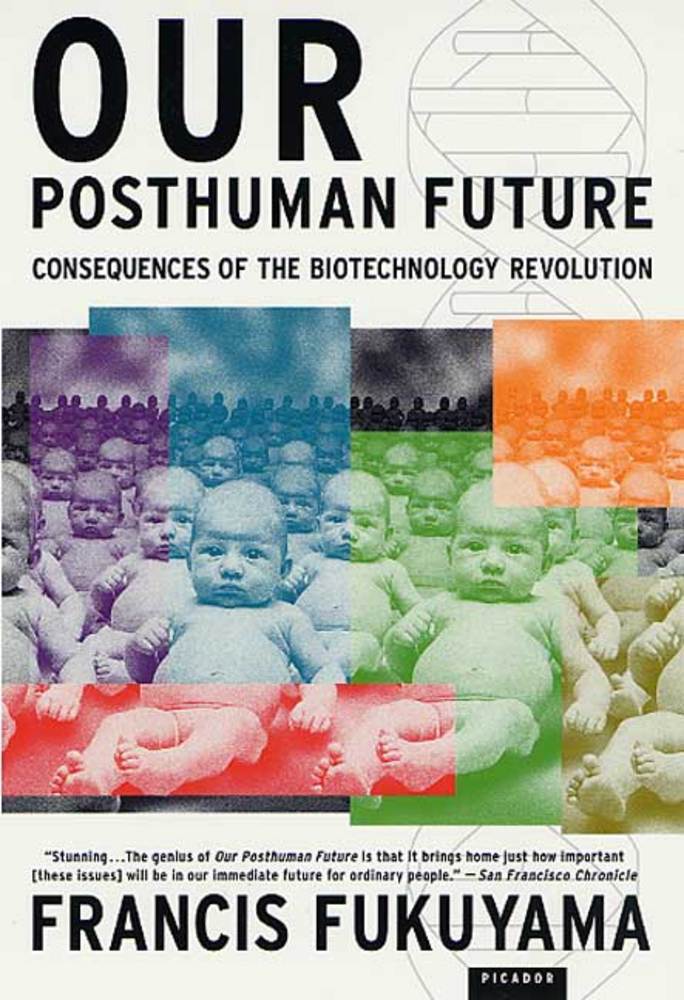Our Posthuman Future Summary
5 min read ⌚
 Consequences of the Biotechnology Revolution
Consequences of the Biotechnology Revolution
You are currently in the midst of a biotechnological revolution that reshapes your life and the lives of those around you. Do you wonder how the advances in genetics and biology are impacting health sciences? Do you think that these developments enhance or threaten human nature?
You probably haven’t gone as far with exploring the implications in your mind, to think of the political issues connected to the development of biotechnology. However, there are many of them.
There are, in fact, many things you do not think about, but directly influence you, your environment, and generations to come. To understand what is at stake, continue reading our summary of this fascinating book which will open your eyes to many things you were not aware of before.
Who Should Read “Our Posthuman Future”? and Why?
In “Our Posthuman Future” Francis Fukuyama proclaims that humankind’s clock is ticking, and there is less time left to make choices that will control the advancement of biotechnology.
We recommend this book to all readers, and propose that it becomes a compulsory reading for politicians and scientists as well. We all live on the same planet and face the changes that technology brings. We may as well be prepared and informed about it.
About Francis Fukuyama
 Francis Fukuyama teaches International Political Economy at Johns Hopkins University. He was appointed to the President’s Council on Bioethics in 2002 and has written several books on the subject of expected future and awaiting changes in the world.
Francis Fukuyama teaches International Political Economy at Johns Hopkins University. He was appointed to the President’s Council on Bioethics in 2002 and has written several books on the subject of expected future and awaiting changes in the world.
“Our Posthuman Future Summary”
Okay, let’s pretend you get up Friday morning, and you hate the idea of going to work. You drink a little pill that is the correct blend of psychotropic medications for your constitution, and you go to work, overflowing with excitement.
However, once you arrive, you acknowledge that you are a bit too ditzy to concentrate on your job.
No problem!
You just pop another pill, and all of a sudden you can concentrate and your manager is so satisfied with your efficiency that by the end of the day he gives you credit for a job well done.
When you arrive home, you make a couple of calls and choose to go out. You scarcely dozed the prior night, so you drink a specific blend that will give you energy for the duration of the evening. And so the night goes on, and your body endures no hostile reaction at all.
However, it sounds too good to be true, doesn’t it? There has to be a catch, some aftereffect, addiction, allergic reaction?
What if there isn’t? What if science had progressed to the point where there were no side effects?
Just consider the possibility that science, not long from now, can control your body chemistry, to a degree until now incomprehensible. Imagine a scenario where there was no drawback.
Your imaginations may not be that far from the truth! Society might be going into a posthuman future.
What happens in such a future?
Well, in it, innovation will give us the capacity to change the meaning of being human. It is advantageous to note, that this will be an opportunity unlike anything else. In the past, flexibility implied the power to seek after those common closures to which humanity was slanted – whether that means the free practice of religion or the right to speak freely.
In case this new kind of freedom implies the loss of any universal idea of being human, conflicts would appear to be unavoidable.
So, if a standard human instinct is an undetectable glue that binds society, what do you think will happen when the bond is broken up?
Key Lessons from “Our Posthuman Future”:
1. Genetic Engineering
2. A Not-So-Human Nature
3. A Time to Act
Genetic Engineering
The speed of advancements in the life sciences field has been remarkable. Genetic engineering, for example, is already common.
Corn is genetically modified to create its internal bug spray. However, it is clear that a considerable amount of research needs to be done before genetic qualities can safely be applied to humanity.
In any case, regardless of whether the full potential of genetics never blooms, the effect of biotechnology will be significant in no less than three different territories.
First, in the more profound comprehension of neuropharmacology. Second, to the prolongation of life. And third, in a more profound understanding of the genetic causation of conduct.
A Not-So-Human Nature
Today, a significant part of the legislative issues that encompass science surround the topic of human dignity, and how to safeguard it.
How does the rise of biotechnology debilitate this human respect?
One clear issue is social stratification. Today, the child of a wealthy individual has as much possibility as any other person to grow up either a virtuoso or an imbecile. Such is the idea of the genetic lottery. While there is a level of genetic selection, there is no assurance.
In the future, this could be different.
A Time To Act
At this point, it ought to be clear that the period in which governments could manage biotechnology by designating a national commission to hold classes with acclaimed researchers and scholars, is rapidly approaching.
Another interesting thing to note is that a group of bioethicists has experienced childhood in tandem with the biotech business. Now and again this community has served to bring up issues and questions that empowered important ideas.
Under different circumstances, however, bio-ethicists have turned out to be merely advanced quislings paid to legitimize whatever the scientific group wished to attempt.
The issue is where to put a boundary of what ought to be permitted and what prohibited?
Like this summary? We’d Like to invite you to download our free 12 min app, for more amazing summaries and audiobooks.
“Our Posthuman Future” Quotes
Biotechnology, in contrast to many other scientific advances, mixes obvious benefits with subtle harms in one seamless package. Share on X If a genetic shortcut to immortality exists, the race is already on within the biotech industry to find it. Share on X People’s relationship to death will change as well. Death may come to be seen not as a natural and inevitable aspect of life, but a preventable evil like polio or the measles. Share on X When it comes to higher-order conditions and behaviors, such as intelligence, aggression, sexuality, and the like, we know nothing more today than that there is some degree of genetic causation, from studies in behavior genetics. Share on X We do not have to regard ourselves as slaves to inevitable technological progress when that progress does not serve human ends. Share on XOur critical review
In his book, Fukuyama mixes different realms of theory, science, finance, legislation, and religion, and dissects the ramifications of advances in biology, genetics, and a vast number of new sciences that you most probably didn’t even know that existed. He never labels issues as good or bad, and his ideas are generally consigned to the sidelines in scientific writings.
Emir is the Head of Marketing at 12min. In his spare time, he loves to meditate and play soccer.


 Consequences of the Biotechnology Revolution
Consequences of the Biotechnology Revolution




